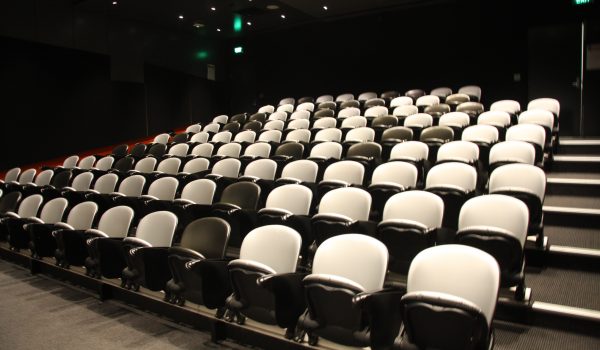Lecture Recording at the University of Melbourne

At the start of 2016, the University’s Academic Board implemented an ‘opt out’ policy for lecture capture across all faculties. All lectures in lecture capture equipped halls are now automatically recorded and made available to students through the Learning Management System (LMS), and lecturers who do not wish to have their lectures recorded are required to submit an application form detailing a valid reason for not doing so.
According to University policy, acceptable reasons for opting out include: lectures containing a significant interactive or discussion element, the use of copyrighted material that can be used as live teaching material but not recorded and distributed, or a guest lecturer who is not an employee of the University not wishing to be recorded. Unacceptable reasons include claiming the availability of recordings will affect student attendance to lectures, undermine students’ pedagogical experience or claims regarding the intellectual property of the lecturer.
The decision to implement an opt-out policy was made in 2013, following pressure from groups such as the University of Melbourne Student Union (UMSU) advocating on behalf of students for the recording of all lectures.
Whilst the number of lectures being recorded has increased under the opt out policy, UMSU’s Education (Academic) Officer, Paul Sakkal, is still not satisfied. He states that “the University’s opt-out policy is an unsustainable one with serious holes. We understand some lecturers may have legitimate reasons to not record lectures, but the ability for lecturers to tick a box labelled ‘other’ when asked for their reason not to record is unacceptable. It is a loose policy that shifts the balance of power firmly towards the lecturer, who is essentially given the authority to choose not to record lectures with very little oversight,” and that “a policy needs to be devised where thorough checks and balances are installed to ensure lecturers can only opt-out of recording when it is absolutely appropriate to do so.”
Currently, approval to opt out from lecture recording is granted by the “Faculty or Graduate School’s Associate Dean (Teaching and Learning) or equivalent (as determined by the Faculty or Graduate School).”
Despite dwindling resistance leading to an increased number of recorded lectures, some lectures remain contentiously unrecorded. Dr Lauren Rosewarne, senior lecturer in the School of Social and Political Sciences, has chosen not to record the two gender studies subjects she is teaching this semester. She has stated that “I have chosen to opt out of recording my lectures for a number of reasons. While my teaching method is very much reliant on in class participation in discussions, I also choose not to record because I teach on a variety of sensitive topics, notably related to sex and the body, which I want students to contribute to an actively and lively discussion about in class. When students know they are being recorded – and also that that recording is going online – they are less likely to participate in these discussions; discussions which I believe are essential to the learning experience.”
Whilst her reasons for opting out are acceptable under the Academic Board’s guidelines, lecturers have the capacity to edit a recording to remove private or sensitive material which may ameliorate concerns of this nature.
Some of Rosewarne’s students feel disadvantaged by this decision. One of her current students, unable to attend a Friday afternoon lecture because of a casual shift at work that cannot be rescheduled without risk of losing said job, states that “missing out on the lecture content makes it a lot harder to properly follow the course content and to have all of the readings and tutorial material explained.” The student also makes the point that “gender studies deals with many sensitive topics that may trigger a number of students, and I think the best way for students to view these lectures would surely be in a place of comfort such as their own bedroom rather than in a large lecture hall.”
Another student faces similar problems, as a Melbourne School of Design (MSD) subject they take has three unrecorded 9am lectures per week. The student’s chronic health issues mean regularly attending these lectures is impossible, and they have had to change subjects as a result.
Similar situations arise for students who struggle with the lecture format because of learning disabilities, or because English is their second language. In the same document that outlines acceptable reasons for opting out of lecture capture—a report by the Teaching and Learning Committee that was presented to the Academic Board in 2013—it was stated that “the University is committed to promoting diversity and equity in access and increasing the proportion of students from diverse social and cultural backgrounds. It is therefore vital that the University ensures these students are appropriately supported in their learning.” Not providing lecture recordings is at odds with this goal, and the policy fails to consider arrangements where, if it is inappropriate to make lecture recordings widely available, they could, however, be made available to students who could demonstrate a requirement for them.